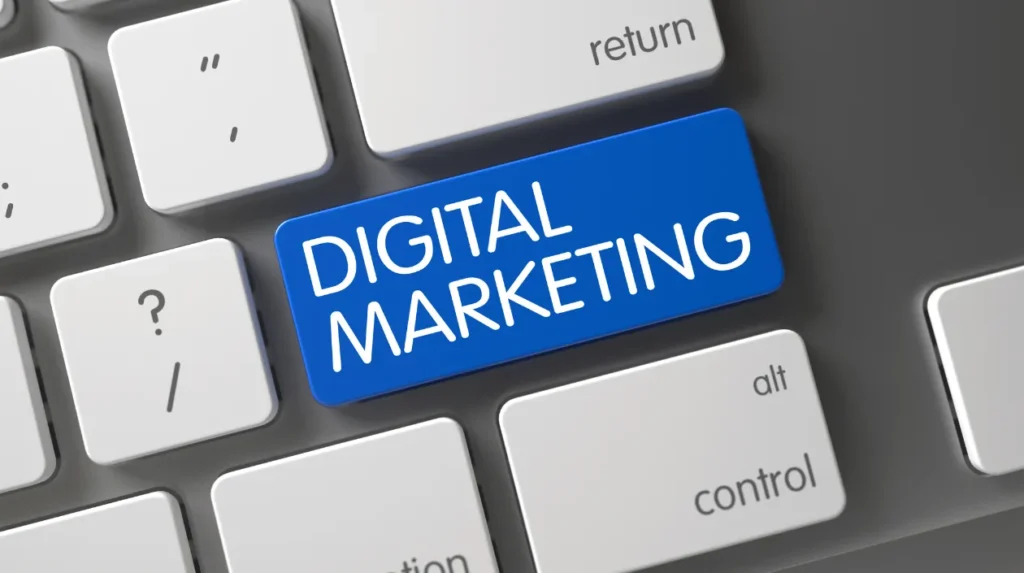Introduction: Navigating the Digital Landscape for Small Businesses
In today’s digital age, a strong online presence is essential for businesses of all sizes, including small businesses. While larger corporations often have significant budgets for marketing, small businesses can still effectively compete by leveraging the right digital marketing strategies. The key is to use cost-effective, targeted, and innovative approaches that connect with the right audience.
In this blog, we’ll explore the top digital marketing strategies small businesses can implement to enhance their visibility, drive traffic, and increase conversions. Whether you’re just starting out or looking to refine your digital marketing approach, these strategies can help you grow and succeed in the online marketplace.
1. Content Marketing: Create Valuable, Engaging Content
Content is one of the most powerful tools in a small business’s digital marketing arsenal. By creating high-quality, relevant content, businesses can educate their audience, build trust, and position themselves as thought leaders in their industry. Whether it’s through blog posts, videos, or infographics, content marketing is a strategy that pays long-term dividends.
How Content Marketing Benefits Small Businesses:
Improved SEO: Regularly publishing valuable content helps improve your website’s SEO (search engine optimization). By targeting relevant keywords and providing informative content, you increase the chances of ranking higher in search engine results, driving organic traffic to your site.
Audience Engagement: Engaging content helps build relationships with potential customers. Offering useful information that addresses pain points and solutions fosters trust and loyalty.
Cost-Effective Marketing: Unlike paid ads, content marketing is a relatively low-cost strategy that can continue to provide value long after it’s published.
To get started, identify your audience’s needs, pain points, and interests. Create blog posts, tutorials, case studies, and guides that offer value and solve problems. Consistency is key, so keep your content fresh and relevant.
2. Social Media Marketing: Engage with Your Audience Where They Are
Social media marketing offers small businesses a unique opportunity to engage with their audience directly. With platforms like Facebook, Instagram, Twitter, and LinkedIn, businesses can build relationships, increase brand awareness, and drive sales by engaging with followers and sharing valuable content.
How to Leverage Social Media Marketing:
Choose the Right Platforms: Not every social media platform will be suitable for your business. Focus on the platforms where your target audience is most active. For example, Instagram and Facebook are great for visual-based products, while LinkedIn is more suitable for B2B services.
Create Engaging Content: Post a mix of content types, including informative blog posts, promotional content, behind-the-scenes glimpses, customer testimonials, and user-generated content. Engage with your audience by responding to comments, answering questions, and hosting polls or giveaways.
Paid Social Advertising: If you have a budget, consider using Facebook Ads or Instagram Ads to target specific demographics. Paid social media campaigns allow small businesses to reach a highly targeted audience with a relatively low investment.
By creating a consistent presence on social media and engaging with your community, you can build a loyal following and drive more traffic to your website.
3. Search Engine Optimization (SEO): Enhance Your Visibility on Search Engines
Search Engine Optimization (SEO) is one of the most effective digital marketing strategies for small businesses. By optimizing your website for search engines like Google, you can improve your chances of appearing on the first page of search results for relevant keywords—leading to increased organic traffic and visibility.
How SEO Helps Small Businesses:
Local SEO: Local SEO is especially important for small businesses that serve a specific geographic area. Optimizing for local search queries can help your business appear in local search results and on Google Maps, which is crucial for businesses like restaurants, retail stores, and service providers.
On-Page SEO: Ensure your website is optimized for both search engines and users by focusing on key SEO elements like meta descriptions, title tags, headers, and internal linking. Optimizing your site’s content with relevant keywords increases your chances of ranking higher in search results.
Mobile Optimization: With more people browsing the web on their mobile devices, having a mobile-friendly website is crucial. Google’s mobile-first indexing means that a website’s mobile version is prioritized in rankings, so ensure your site is responsive and fast-loading on all devices.
By focusing on SEO, you can drive organic traffic to your website without having to rely heavily on paid ads.
4. Email Marketing: Build and Nurture Relationships with Subscribers
Email marketing is one of the most direct ways to reach and engage your audience. By building an email list and sending targeted campaigns, small businesses can nurture relationships with customers, promote new products or services, and drive repeat business.
How to Maximize Email Marketing:
Lead Magnets: Offer incentives like free eBooks, exclusive discounts, or helpful guides to encourage visitors to sign up for your email list. This helps you build a qualified email list of people who are interested in your business.
Segmentation: Not all subscribers are the same. Segment your email list based on customer behavior, preferences, or demographics so you can send personalized, relevant content.
Automated Campaigns: Use email automation tools to send welcome emails, abandoned cart reminders, and follow-up messages. Automated email campaigns save time while still allowing businesses to nurture customer relationships and increase conversions.
Email marketing is a cost-effective way to stay connected with your audience and keep your business top-of-mind for customers.
5. Pay-Per-Click (PPC) Advertising: Boost Visibility and Drive Traffic
While organic strategies like SEO are valuable, pay-per-click (PPC) advertising allows small businesses to see quicker results. PPC campaigns enable businesses to bid for ad space on platforms like Google, Facebook, and Instagram, ensuring that their ads reach a highly targeted audience.
How PPC Advertising Benefits Small Businesses:
Targeted Advertising: PPC platforms allow you to target specific demographics, interests, and behaviors, ensuring your ads are shown to the right audience. You can create ads that cater to a niche market or a particular location, maximizing your advertising budget.
Budget Control: With PPC, businesses can set a daily budget, giving them control over their spending. Unlike traditional advertising, you only pay when someone clicks on your ad, making it an affordable option for small businesses with limited marketing budgets.
Measurable Results: PPC campaigns offer detailed insights into ad performance, such as impressions, clicks, and conversions. This allows businesses to track their ROI and adjust their campaigns for maximum effectiveness.
For small businesses looking to quickly drive traffic, PPC advertising offers an excellent way to generate leads and increase brand visibility.
6. Influencer Marketing: Leverage Trust and Reach
Influencer marketing has gained significant traction in recent years, especially for small businesses looking to expand their reach. By partnering with influencers who have an established following in your niche, you can build trust with potential customers and boost brand awareness.
How Influencer Marketing Helps Small Businesses:
Authenticity and Trust: Consumers tend to trust influencers because they see them as credible sources of information. When an influencer endorses your product or service, their followers are more likely to trust your brand.
Targeted Reach: By working with influencers who have a following that aligns with your target audience, you can tap into a community that is already interested in your products or services.
Cost-Effective Campaigns: Micro and nano influencers (with smaller, highly engaged audiences) offer a cost-effective way for small businesses to run influencer campaigns without breaking the bank.
Influencer marketing is a great strategy for small businesses looking to leverage the trust and reach of influencers to expand their audience.
7. Video Marketing: Engage Your Audience Visually
Video marketing is becoming one of the most powerful tools for engaging and converting customers. Whether it’s through YouTube, social media platforms, or your website, video can help businesses tell their story, showcase their products, and engage with customers in a way that text and images alone can’t.
How Video Marketing Boosts Engagement:
Product Demonstrations: Videos can showcase your products in action, giving customers a better understanding of how they work and the benefits they offer.
Customer Testimonials: Videos featuring customer reviews or success stories are a powerful way to build social proof and trust with your audience.
Live Streaming: Live video allows businesses to engage with their audience in real-time. This could include live Q&A sessions, product launches, or behind-the-scenes glimpses of your business.
With the growing popularity of video content, small businesses that invest in video marketing can create more dynamic and engaging content that resonates with their audience.
Conclusion: Digital Marketing Strategies for Small Business Growth
For small businesses, effective digital marketing is about making the most of limited resources while maximizing impact. By focusing on strategies like content marketing, social media engagement, SEO, email campaigns, PPC advertising, and video marketing, small businesses can increase brand visibility, build stronger customer relationships, and drive more conversions.
Digital marketing offers small businesses the ability to compete with larger enterprises and reach a wider audience, regardless of budget. By choosing the right combination of strategies, small businesses can grow their online presence and achieve long-term success.
Transform Your Brand with Zolofox – Your Strategic Partner for Success
At Zolofox, we believe that a great brand deserves a powerful online presence. Our team of experienced designers, marketers, and strategists work closely with you to craft customized solutions that not only elevate your brand but also drive measurable results. Whether it’s through innovative branding, result-driven social media marketing, or seamless website design, we create experiences that captivate and convert.
We don’t just build websites or post on social media — we build brands that resonate, engage, and grow. Every strategy is tailored to meet your unique needs and business goals, ensuring your brand stands out in a competitive digital landscape.
Are you ready to elevate your business to new heights?
Let’s turn your vision into reality with the expertise of Zolofox. Contact us today for a free consultation and take the first step towards exceptional growth!



